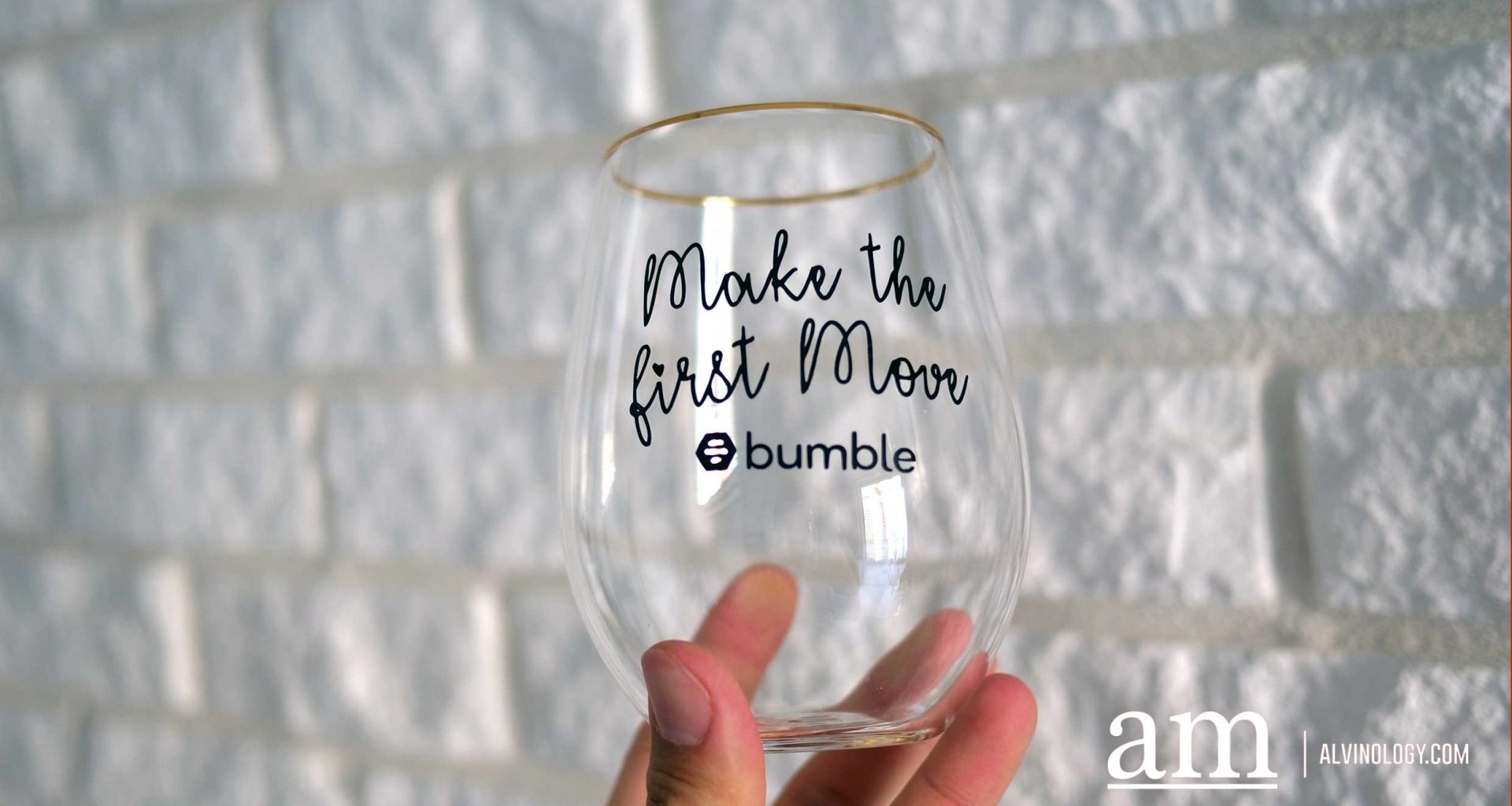Bumble, the women-first dating and social networking app, yesterday unveiled insights from its inaugural Bumble Modern Relationships Study 2021 via a virtual panel discussion which explored topics such as dating culture in Singapore, dating during the pandemic, and why women should make the first move. Various panellists took part in the discussion, including Singapore’s leading women’s rights and gender equality group, AWARE.
Moderated by MONEY FM 89.3 presenter, Michelle Martin, the panel unpacked traditional gender roles and dynamics within relationships, and the desire to build meaningful connections amidst the COVID-19 pandemic. The panel consisted of AWARE’s Communications Manager, Kelly Leow, relationship coach, Cindy Leong, equality advocate, Anita Kapoor, and Bumble’s APAC Director, Lucille McCart.
At the top of the agenda were evolving dating attitudes and expectations in today’s day and age. The Modern Relationships Study revealed that nearly half of people in Singapore (49%) seek lasting connections and long-term relationships when dating or meeting new people online. Singapore data from Bumble echoes this insight, with 54% of people on Bumble in Singapore currently looking for a relationship. Singapore women are slightly more likely to be looking for long-term relationships on Bumble (59%) compared to Singapore men (51%).
The Bumble-commissioned third-party independent study also revealed more than half of people in Singapore (51%) believe it is possible to foster meaningful and genuine connections through dating apps. Singapore women (56%) are slightly more optimistic about finding true love on dating apps than Singapore men (48%). According to the study, the most important aspects among women when searching for a date or potential partner are personality (84%) and emotional connection (63%).
During the discussion, Lucille McCart, Bumble’s APAC Director, said: “Bumble was founded on the belief that equality and respect are the foundations of a healthy and happy relationship. We fundamentally believe that in 2021, traditional gender roles no longer serve anyone. By throwing the dating rulebook out the window and by inviting women to exercise their agency and have control within their dating lives by making the first move, we are creating a space for people to form meaningful connections that lead to lasting relationships.”
Kelly Leow, AWARE’s Communications Manager, shared: “Dating can be a very fraught undertaking in today’s world, not least because of gender inequalities and sticky traditional gender roles. We’re happy to see that companies like Bumble are committed to challenging these norms and combating harassment and other harmful behaviours on their platforms.”
Empowering women to make the first move
In Singapore, people have become more supportive of gender equality in recent years, and we have seen more women take up leadership roles in boardrooms and in politics. However, more needs to be done to challenge conservative mindsets.
Bumble believes the key to equitable relationships is empowering women to make the first move — from small steps such as initiating personal conversations to bold strides to advance their careers. By encouraging women to make the first move, Bumble hopes to give them the courage to flip traditional gender roles on their head and shift power dynamics from the get-go.
When it comes to dating and relationships, the Modern Relationship Study uncovered that 41% of women in Singapore believe men should make the first move, while in contrast, one in five men in Singapore believe they should be the ones making the first move.
Bumble is determined to change these figures by showing women in Singapore how empowering, exciting and fun making the first move can be. And women in Singapore are beginning to recognise the importance of taking charge of their dating lives.
Based on their past relationships, more than half of single people in Singapore said that men typically made the first move during dating or in relationships. However, nearly half of the women agreed that they would miss out on a romantic opportunity if they failed to make the first move. Gen Z women (those aged between 18 and 22) are slightly more likely (51%) to agree compared to Millennial women aged 23 to 30 (45%).
With more to be done in Singapore to lift women up, the panel discussion explored how we can encourage more women to make the first move in all aspects of their lives.
COVID-19 has normalised online dating
Amid nationwide lockdowns and safe-distancing measures, the pandemic has changed the way we interact and connect — casual lunches, movie dates and get-togethers have given way to more text messages, phone calls and video calls. The study found that more than one in three people in Singapore increased their usage of dating apps due to COVID-19. In particular, nearly one in three women in Singapore said their usage of dating apps increased during this period, while two in five Singapore men used dating apps more often.
As society begins to open up, people on Bumble in Singapore are split on regular in-person dates vs socially distanced dating — 45% want to go on socially distanced dates, while just over 45% are happy to go on regular in-person dates. Less than 10% want to date virtually only now that in-person dating is back on the agenda.
Convenience and flexibility are key drivers of dating app usage in Singapore. Being able to use dating apps whenever they want (62%), the ease of screening potential dates (62%) and the ease of turning people down (49%) were cited as the top three benefits of using dating apps. While dating apps have helped people in Singapore connect virtually during the pandemic, the findings suggest that virtual dating is here to stay even as Singapore looks towards increasing in-person social interactions. People are likely to continue using virtual dating tools as a way to screen potential dates ahead of a physical meet-up. A key element of virtual dating is Bumble’s Voice Call and Video Chat feature that enables users to make voice and video calls through the app without sharing personal information like a phone number or email address.
Commitment to safety
Features like video chat are just one component of Bumble’s suite of safety features. Bumble has a zero-tolerance policy for harassment, abuse or hate speech of any kind and has built the app with the values of kindness and accountability. Bumble’s product safety features include:

- Photo Verification: Bumble utilizes both artificial intelligence (AI) and a team of human moderators to verify that users really are who they say they are. No catfishing here. If you see the blue safety shield icon on someone’s profile you know they’ve gone through Bumble’s photo verification process.
- 24/7 Moderation: Bumble has moderators located around the world to support its community any time of day. Bumble has a zero tolerance for bad behaviour in the app.
- Private Detector: Another Bumble feature that leverages AI, Private Detector is able to capture, blur and alert users that they’ve been sent an unsolicited nude image. It’s then the user’s choice to either delete, view or report the image.
- Unmatch: Not all matches work out, but if someone behaves inappropriately and then unmatches you, you will have the option to report that user’s behavior to Bumble right within that preserved chat screen.
- Safety + Wellbeing Centre: A resource hub within the Bumble app built to help Bumble’s global community have a safe and healthy dating experience.
In addition to the safety features, Bumble also has an anti-spam team to proactively detect and flag fake profiles within the app. This team may auto-block or request for verification when they run across suspicious profiles or detect certain profile attributes that do not meet our community guidelines.



![[Review] Toast the Season with Festive Cocktails at Canning Bar & Lounge [Review] Toast the Season with Festive Cocktails at Canning Bar & Lounge - Alvinology](https://media.alvinology.com/uploads/2025/12/Screenshot-2025-12-19-131616-110x110.png)







![[Giveaway] Transformers Thrilling 30 [Giveaway] Transformers Thrilling 30 - Alvinology](https://alvinology.com/wp-content/uploads/2014/11/15532202189_d9daf7c8ba_c.jpg)
